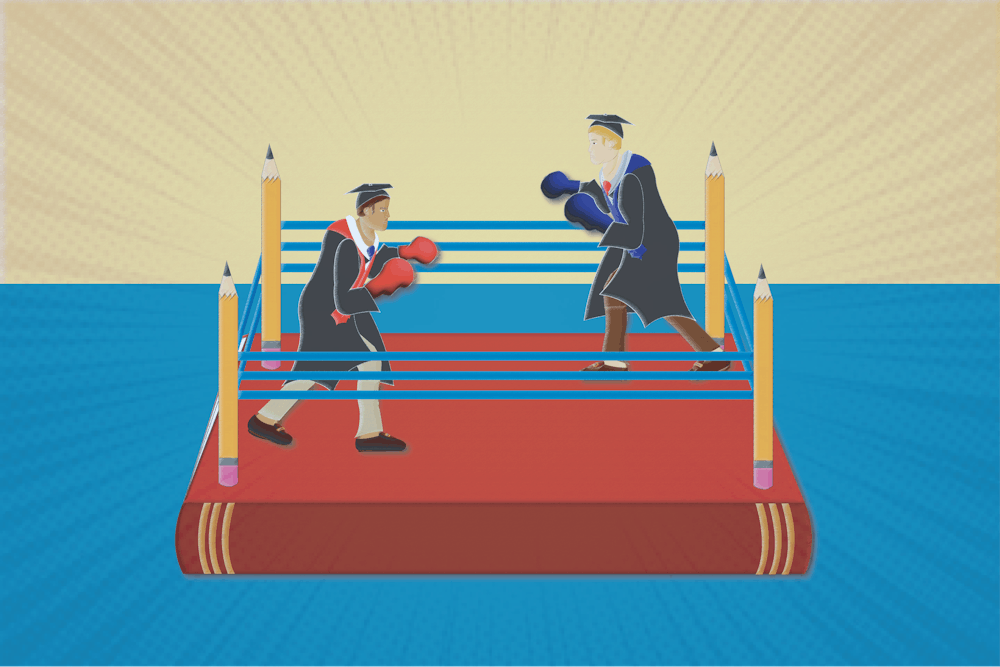We’re students at a university stamped with the Public Ivy label, which suggests a collegiate experience comparable to the private Ivy League schools in the northeast. Compared to the traditional Ivy League, Public Ivies typically have cheaper tuition, have greater student enrollment and are renowned for excellent athletic programs. But it is also where the average student is bludgeoned by demanding courses, pressures to be in career- or education-advancing extracurriculars and situates students to be in needless competition with each other.
This demanding balance is compounded by an implicit expectation that students should be competing against each other. Students feel a vehement urge to excel, often at the expense of others. That’s because our school seems to be designed in a way that’s not about simply learning — at UNC, it’s about outdoing one another.
In the entering class of 2024, 93.3 percent of students were in the top 20 percent of their high schools. 76.4 percent were in the top 10 percent. Walking down Polk Place, I guarantee you’ll pass multiple valedictorians. With a demographic of hardworking, ambitious students, most of us will continue to look for the apex of success in college. But the deep-rooted, competitive elements of our university take students who merely compete against their best self and escalate their motivation into a desire to outperform others.
Think of all the pre-business majors, scrambling to bolster their resumes with enough clubs, extracurricular activities and non-profits to stand out among all the other intelligent pre-business applicants. Other majors at UNC, like nursing, public health and media and journalism require competitive applications for admittance. Getting into UNC is only half the battle — getting into your intended or desired major is another hurdle.
There are even competitive minor programs that require thorough applications or special permission from a department, like writing for the screen and stage, speech and hearing sciences and entrepreneurship.
This inescapable competition doesn’t end there. Pre-med and STEM majors grapple with infamous “weed out” classes like Biology 101: Principles of Biology or Chemistry 101: General Descriptive Chemistry I, designed to be extremely challenging so that the amount of students pursuing those majors slims significantly. Honors Carolina, which accepts about 10 percent of incoming first-year students, is another competitive program that exists in an already-prestigious university. Some classes require applications or “permission.”
Competition inherently isn’t bad — at its core, it extracts the very best work out of people. Selectiveness stimulates ambition and enterprise in a way that working individually can’t always do. It ensures programs are composed of the “best of the best” in terms of qualification. But too much competition leads to burn out, insecurity, imposter syndrome and even anxiety and depression.
Applications to certain programs work against the long-held idea that college is about exploring different subject areas before specialization. This kind of competition pits students against each other. It evokes jealousy. We need competitive applications to an extent. But we don’t need them everywhere. We shouldn’t be expected to be masters to get into a program when we don’t even have a bachelor’s degree yet.
Our school shouldn’t be exacerbating gifted kid syndrome. Instead of embedding competition in every corner of campus, the University could implement anti-burnout strategies that many other schools have adopted — wiping failed classes from a student’s academic record after they retake and pass a class, for example, would greatly reduce a large source of student stress.



